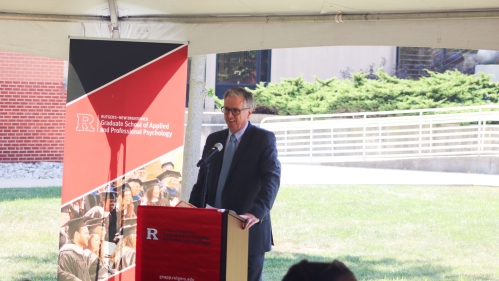Daniel Hart, EdD

From Our Dean
_
_

Dear GSAPP Community,
The Graduate School of Applied and Professional Psychology (GSAPP) is a community of students, staff, faculty, leaders, and alumni developing, evaluating, and applying the psychological knowledge and skills needed to improve human welfare and advance social justice.
Every student at GSAPP learns in small, interactive classes and through mentored clinical, practical, and research experiences. This learning environment ensures that GSAPP graduates leave with the competencies and values to become leaders in their fields.
Faculty members in each of the three academic departments (Applied, Clinical, and School Psychology) are national and international leaders in their fields, creating research-based practices for advancing the well-being of children, youth, adults, and systems worldwide. Our faculty are dedicated to the preparation of our students as clinicians and practitioners.
The synthesis of knowledge creation with action—research and practice—is evident throughout GSAPP. Our six centers (Answer, Center of Alcohol and Substance Use Studies, Center for Psychological Services, Center for Youth Social Emotional Wellness, Douglass Developmental Disabilities Center, and Rutgers Center for Adult Autism Services) engage with the community to provide the highest quality, evidence-based services to New Jersey residents and lead research efforts to improve the delivery of care and an understanding of the promotion of human functioning.
GSAPP is in many ways an embodiment of the ideals of education: deeply committed students and faculty working together to learn from each other, advancing an understanding of the world, and applying the best knowledge to improve the quality of life.
Daniel Hart, EdD
